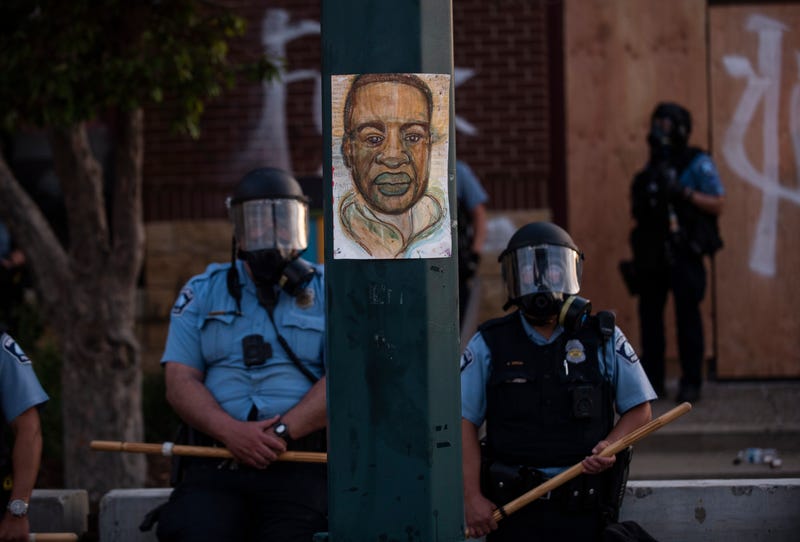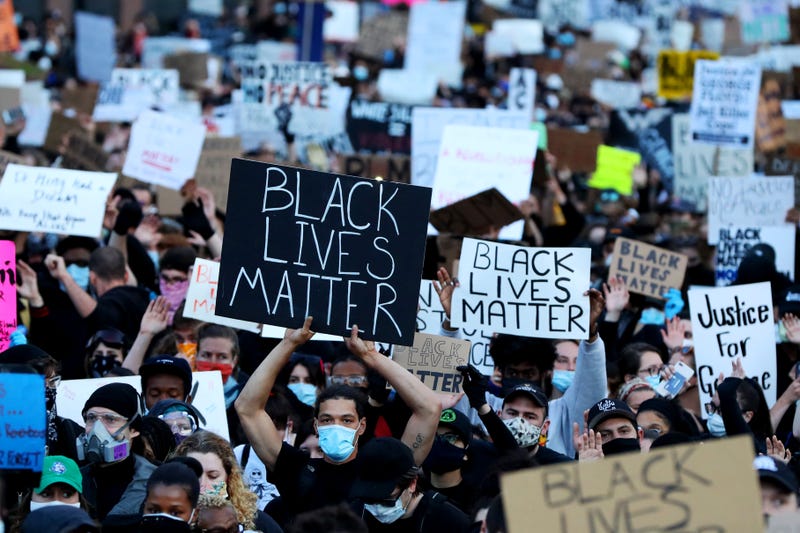
Last year’s widespread social media conversations concerning racial and social justice in America spilled over into actual police reform, a new study says.
The report, titled "Say Their Names," was released by communications and research firm Marathon Strategies and The BLK+Cross. It found a direct correlation between state-level legislature action on social justice issues and the amplified online dialogue about police reform, using analysis and trends from all 50 states and Washington, D.C.
Connections were most noteworthy in Minnesota, Georgia, New York and Washington, D.C., the report said, noting over 1 million mentions of so-called state and social justice keywords between May 31, 2020 and September 15, 2020.
Demonstrations over the deaths of George Floyd, Ahmaud Arbery, Breonna Taylor and others swept across the country - and the world - in 2020.
The report "suggests that online activism played an essential role in driving political action on reforms."

Immediately after Floyd’s death, "Black Lives Matter" was mentioned over 80 million times on Facebook, Twitter, Reddit and various blogs.
In the following months, states considered 221 police reform measures. In the noted top states, which two of the deaths occurred in, 110 police reform measures were introduced by state-level lawmakers during that time.
Overall, governors took 72 actions like signing laws, forming committees and issuing executive orders.
"This report illustrates the power of digital amplification to enact change at all levels of government," Marathon CEO and Founder Phil Singer said. "These findings indicate that the nationwide online discussion of social justice issues has been effective in delivering legislative proposals and reforms while demonstrating that anyone who wants to drive policy change must be paying close attention to what’s being said online about the issue."

